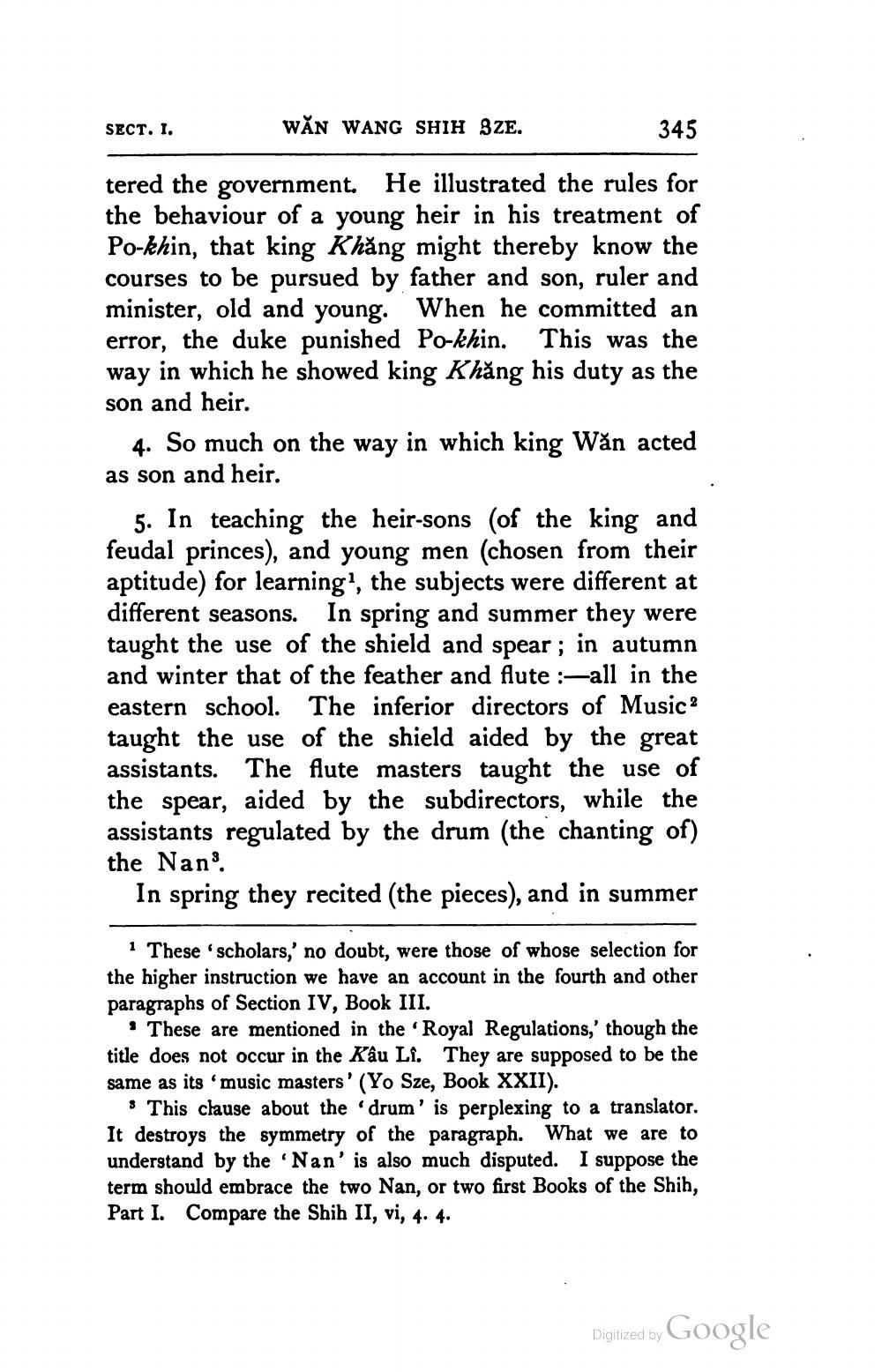________________
SECT. I.
WXN WANG SHIH SZE.
345
tered the government. He illustrated the rules for the behaviour of a young heir in his treatment of Po-khin, that king Khăng might thereby know the courses to be pursued by father and son, ruler and minister, old and young. When he committed an error, the duke punished Po-khin. This was the way in which he showed king Khăng his duty as the son and heir.
4. So much on the way in which king Wăn acted as son and heir.
5. In teaching the heir-sons (of the king and feudal princes), and young men (chosen from their aptitude) for learning?, the subjects were different at different seasons. In spring and summer they were taught the use of the shield and spear; in autumn and winter that of the feather and Aute :--all in the eastern school. The inferior directors of Music? taught the use of the shield aided by the great assistants. The flute masters taught the use of the spear, aided by the subdirectors, while the assistants regulated by the drum (the chanting of) the Nano
In spring they recited (the pieces), and in summer
1 These scholars,' no doubt, were those of whose selection for the higher instruction we have an account in the fourth and other paragraphs of Section IV, Book III.
These are mentioned in the Royal Regulations, though the title does not occur in the Kâu Li. They are supposed to be the same as its music masters' (Yo Sze, Book XXII).
* This clause about the drum' is perplexing to a translator. It destroys the symmetry of the paragraph. What we are to understand by the Nan' is also much disputed. I suppose the term should embrace the two Nan, or two first Books of the Shih, Part I. Compare the Shih II, vi, 4. 4.
Digitized by Google




